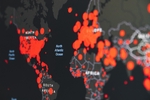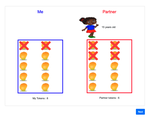Magdalena Larreboure
Ph.D Candidate in Public Policy
Harvard University
I am a PhD Candidate in Public Policy at Harvard University, following the Politics and Institutions track.
I’m interested in political economy, with a focus on environmental politics and policy. Within my research, I explore the impact of collective action and social movements in electoral behavior, natural disasters as catalysts for policy change across different regimes, and the politics of groundwater allocation and water stress in Chile.
Prior to starting the PhD I worked for three years as a senior research specialist at the Busara Center in Nairobi, Kenya. Before that, I completed MA and BA degrees in Economics at Pontificia Universidad Católica de Chile.
Interests
- Political Economy
- Environmental Politics
Education
PhD in Public Policy, 2027
Harvard University
MA in Economics, 2019
Pontificia Universidad Católica de Chile
BA in Business and Economics, 2017
Pontificia Universidad Católica de Chile



